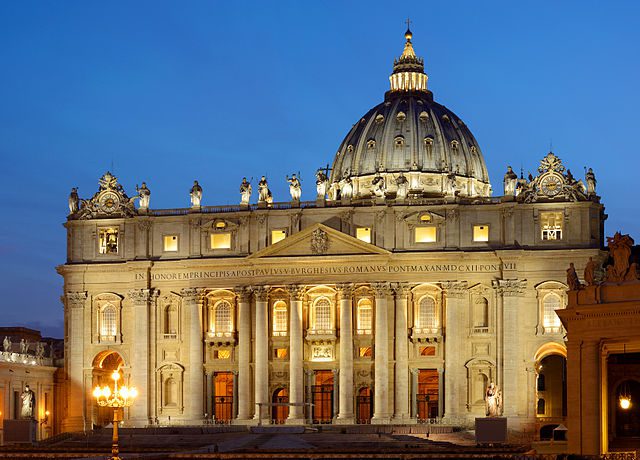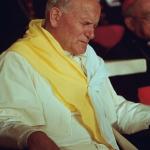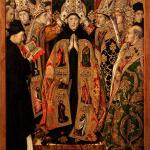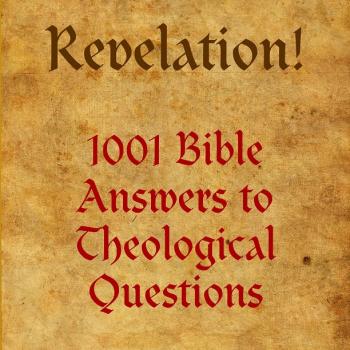
St. Peter’s Basilica at sunset (Vatican City) (Photograph by Livioandronico2013: 4-14-15) [Wikimedia Commons / Creative Commons Attribution-Share Alike 4.0 International license]
(2-18-08)
***
Words of anti-Catholic polemicist Steve Hays will be in blue.
***
Vatican II urges Catholics to speak in terms that Protestants can understand (when talking to them):
We must get to know the outlook of our separated brethren. To achieve this purpose, study is of necessity required, and this must be pursued with a sense of realism and good will. Catholics, who already have a proper grounding, need to acquire a more adequate understanding of the respective doctrines of our separated brethren, their history, their spiritual and liturgical life, their religious psychology and general background. Most valuable for this purpose are meetings of the two sides-especially for discussion of theological problems-where each can treat with the other on an equal footing-provided that those who take part in them are truly competent and have the approval of the bishops. From such dialogue will emerge still more clearly what the situation of the Catholic Church really is. In this way too the outlook of our separated brethren will be better understood, and our own belief more aptly explained.
. . . The way and method in which the Catholic faith is expressed should never become an obstacle to dialogue with our brethren. It is, of course, essential that the doctrine should be clearly presented in its entirety. Nothing is so foreign to the spirit of ecumenism as a false irenicism, in which the purity of Catholic doctrine suffers loss and its genuine and certain meaning is clouded.
At the same time, the Catholic faith must be explained more profoundly and precisely, in such a way and in such terms as our separated brethren can also really understand.
(Decree on Ecumenism, Chapter II, sections 9, 11; my emphasis)
67. This most Holy Synod deliberately teaches this Catholic doctrine and at the same time admonishes all the sons of the Church that the cult, especially the liturgical cult, of the Blessed Virgin, be generously fostered, and the practices and exercises of piety, recommended by the magisterium of the Church toward her in the course of centuries be made of great moment, and those decrees, which have been given in the early days regarding the cult of images of Christ, the Blessed Virgin and the saints, be religiously observed.(22*) But it exhorts theologians and preachers of the divine word to abstain zealously both from all gross exaggerations as well as from petty narrow-mindedness in considering the singular dignity of the Mother of God.(23*) Following the study of Sacred Scripture, the Holy Fathers, the doctors and liturgy of the Church, and under the guidance of the Church’s magisterium, let them rightly illustrate the duties and privileges of the Blessed Virgin which always look to Christ, the source of all truth, sanctity and piety. Let them assiduously keep away from whatever, either by word or deed, could lead separated brethren or any other into error regarding the true doctrine of the Church. Let the faithful remember moreover that true devotion consists neither in sterile or transitory affection, nor in a certain vain credulity, but proceeds from true faith, by which we are led to know the excellence of the Mother of God, and we are moved to a filial love toward our mother and to the imitation of her virtues.
(Dogmatic Constitution on the Church / Lumen Gentium, Chapter VIII, IV, section 67; my emphasis)
This very much follows a biblical, Pauline theme as well:
1 Corinthians 9:19-23
For though I am free from all men, I have made myself a slave to all, that I might win the more. To the Jews I became as a Jew, in order to win Jews; to those under the law I became as one under the law — though not being myself under the law — that I might win those under the law. To those outside the law I became as one outside the law — not being without law toward God but under the law of Christ — that I might win those outside the law. To the weak I became weak, that I might win the weak. I have become all things to all men, that I might by all means save some. I do it all for the sake of the gospel, that I may share in its blessings.
So, let’s be proud to be Catholics, and to talk and act like Catholics, not being ashamed at all. But let’s also keep in mind that it is okay — indeed, urged by St. Paul and the Church in the Second Vatican Council — to speak in terms that our separated, highly esteemed Protestant brethren can understand and relate to. It doesn’t mean we have to water down Catholic teaching or present “Catholic Lite”; it means simply that we express the Faith in terms that are more understandable. We try to speak “Protestantese.”
Let’s not be uncharitable to our Protestant brethren simply because we are excited about new Catholic truths and may be trying to distance ourselves from our past. Let’s not forget, if we are converts, where we once were, and how sincere we were before; just misinformed and undereducated about Catholicism. If we truly are excited about the Catholic faith, and want to help bring more people into it, then we need to learn this, or we will fail in our task, or at least not do as well as we could do.
I thank God that two lifelong Catholic friends of mine took the urgings of Vatican II seriously and patiently shared the faith with me in ways that I could understand. If they hadn’t done that, I may not have ever converted, or might have years later than I did. And these were not converts. They were cradle Catholics who were following the advice of the council; sharing their faith (just as Pat Madrid and Karl Keating are cradle Catholics who have understood and come to apply this approach).
Anti-Catholics like Steve Hays do not understand this aspect at all, and so, in his confusion and distress over Scott Hahn’s success in persuading people, he writes ridiculous, outrageously false accusations like the following (and I was honored to be thrown into the mix with Scott, too):
There are Catholic laymen who, because they’re involved in group Bible studies with their Evangelical friends and coworkers, end up with a personal theology that is more Evangelical than their church.
3.Apropos (2), many Evangelical immigrants to Rome bring along a certain amount of contraband theology stashed away in their luggage.
As I’ve observed in the past, they are often far more conservative than cradle Catholics or the clergy. Indeed, they’re often at odds with their adopted denomination.
So guys like Dave Armstrong and Scott Hahn present an artificially Evangelicalized version of Roman Catholicism.
Consider Hahn’s use of covenant theology to defend and explicate Catholic dogma. This is clearly a carryover from his Presbyterian past.
He’s grafting elements of one theological system onto elements of an opposing theological system.
So they end up with a sterile hybrid theology that isn’t consistently Catholic or Protestant.
4.The reason that an apologist like Hahn is successful in bringing Evangelical fence-straddlers over to the Rome fold is precisely the because he has erected an Evangelicaloid bridge between the two traditions.
When Evangelicals read about his version of Catholicism, it looks uncannily familiar. A family resemblance. They’ve seen it before. The shock of recognition. A long lost son. Twins separated at birth. This is what we always believed!
5.When they present Catholicism, the outside surface of the door has a heavy coat of Evangelical paint, while the inside surface of the door has a Catholic coat of paint.
Kind of like the Gingerbread house in Hansel and Gretel – with Evangelical icing, sprinkles, gum drops, M&Ms, marshmallows, and candy canes on the outside, along with a yummy aroma from the chimney. [9-14-06]
Steve doesn’t get it. And he doesn’t because he assumes, in his anti-Catholic outlook, that the differences between Christians are much greater than they actually are (in fact, for him, we are not Christians at all, so there you go). He assumes that Scott Hahn and myself must be fudging the facts and trying to present a faith neither Catholic nor Protestant. This is his “argument.” This is how desperate and out to sea some of our opponents are. But it’s not so. We’re merely presenting the Faith in terms that can be understood better by non-Catholics. He has never succeeded in proving a single instance where anything I wrote, or that Scott wrote, has contradicted official Catholic theology (nor has anyone else, in my case).
In another screed, Hays viciously attacked Scott Hahn as essentially a liar and deceiver (and I defended him in my reply, on 5-29-07):
If there’s one word to summarize his method, it’s “equivocation.”
. . . Hahn has no excuse to mislead the reader this way.
. . . Hahn’s simplistic misrepresentation.
As a one-time evangelical himself, Hahn must know this, but he prefers to deceive the reader.
This is quite deceptive, for none of these local councils or synods qualify as ecumenical councils. Another one of Hahn’s studied equivocations.
A reader who relied on Hahn for his knowledge of Catholicism would have no idea what a skewed picture he’s getting. Hahn poses as a representative of Catholic dogma, but his exegetical argumentation is hardly representative of mainstream Catholicism.
Even in this pseudo-analysis, Hays is self-contradictory, because he faults Scott for supposedly mindlessly aping Catholic dogma, yet on the other hand he accuses him of misrepresenting same. Which is it? Or is it just that anything goes, no matter how ridiculous or incoherent and illogical, when an anti-Catholic criticizes a Catholic and Catholicism?
I’ve been falsely accused of utilizing sola Scriptura as a method to refute Protestant notions, simply because I cited a lot of Bible verses.
So there is a balance here, as always. We can remain thoroughly orthodox in our theology and practices, but vary in how we present and defend our beliefs to others, so that we will more effectively communicate glorious Catholic truths. Scott is doing this. We ought to admire him for it, and do more of what he does, ourselves, in order to be more so the sort of Catholics that our Church in an ecumenical council ratified by a pope, would desire us to be.













